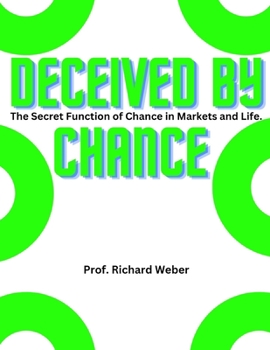Deceived by chance: The Secret Function of Chance in Markets and Life.
We all fall victim to randomness often, which causes us to overestimate the influence of luck and chance on our lives. When uncertainty and randomness are required, words like "skills" and "determinism" are used. This contrast is most evident in the stock market, where the term "competent investor" is typically replaced by "fortunate idiot."
Without specific skills, one cannot succeed in various professions: Without knowing what they are doing, it is improbable that a plumber or dentist will have a successful career.
Unfortunately, because financial markets are inherently random, novice investors can have successful track records, much like millions of monkeys tapping away on typewriters for a long enough period can eventually produce Shakespeare. It's likely that some of them will.
For illustration purposes, consider a cohort of 10,000 investors who, on average, have a 45% chance of being profitable each year. In other words, investing based on the outcome of a coin toss would be preferable.
Nevertheless, despite their lack of talent, we may anticipate that over 200 of them will have been lucrative every year after five years based solely on probability. They would have a spotless record and take pride in compliments for their extraordinary abilities.
Naturally, the unpredictability that keeps these "acute successful randomness idiots" alive will work against them in the long run. Wall Street has witnessed several traders lose everything in one disastrous quarter after years of success.
Their fleeting success was frequently the result of pure luck-being in the right location at the right moment.
We frequently confuse talent and determinism with luck and unpredictability.
Related Subjects
Philosophy




